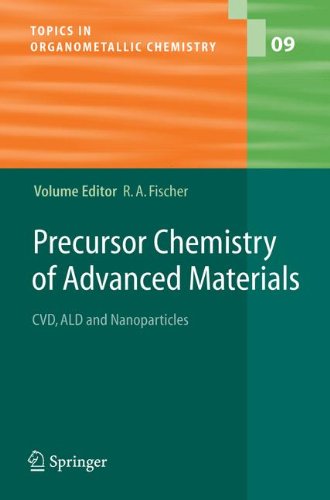

Most ebook files are in PDF format, so you can easily read them using various software such as Foxit Reader or directly on the Google Chrome browser.
Some ebook files are released by publishers in other formats such as .awz, .mobi, .epub, .fb2, etc. You may need to install specific software to read these formats on mobile/PC, such as Calibre.
Please read the tutorial at this link: https://ebookbell.com/faq
We offer FREE conversion to the popular formats you request; however, this may take some time. Therefore, right after payment, please email us, and we will try to provide the service as quickly as possible.
For some exceptional file formats or broken links (if any), please refrain from opening any disputes. Instead, email us first, and we will try to assist within a maximum of 6 hours.
EbookBell Team

4.8
94 reviewsMaterial synthesis by the transformation of organometallic compounds (precursors) by vapor deposition techniques such as chemical vapor deposition (CVD) and atomic layer deposition (ALD) has been in the forefront of modern day research and development of new materials. There exists a need for new routes for designing and synthesizing new precursors as well as the application of established molecular precursors to derive tuneable materials for technological demands. With regard to the precursor chemistry, a most detailed understanding of the mechanistic complexity of materials formation from molecular precursors is very important for further development of new processes and advanced materials. To emphasize and stimulate research in these areas, this volume comprises a selection of case studies covering various key-aspects of the interplay of precursor chemistry with the process conditions of materials formation, particularly looking at the similarities and differences of CVD, ALD and nanoparticle synthesis, e.g. colloid chemistry, involving tailored molecular precursors.